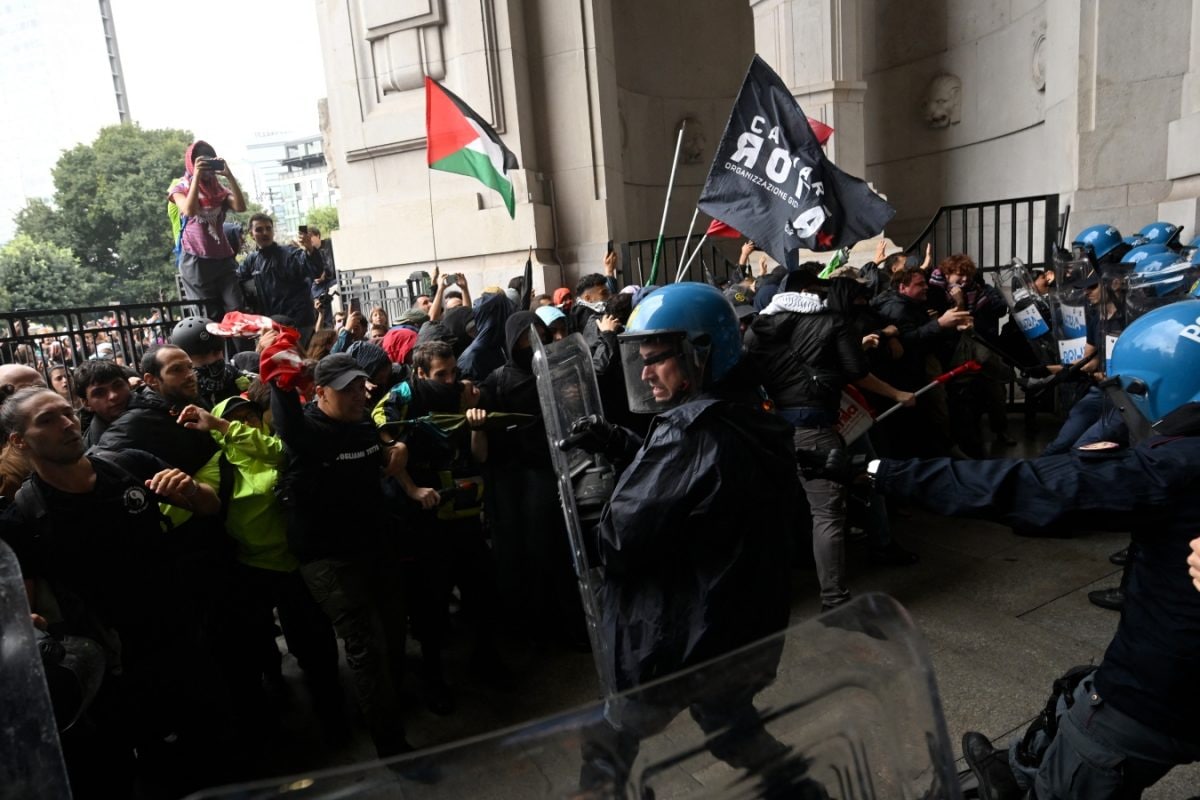Abd el-Fattah spent nearly 12 years in and out of prison for protests and dissent. Rights groups say thousands remain jailed despite the high-profile pardon. His family led relentless campaigns, including hunger strikes, to secure his release.

Prominent Egyptian activist Alaa Abd el-Fattah stands in a cage during a verdict hearing for 21 people over an unauthorized street protest in 2013, in a courtroom in Cairo, Egypt, on Feb. 23, 2015. (Photo: AP)
Egypt’s most prominent political prisoner, Alaa Abd el-Fattah — whose name became synonymous with the crushed hopes of the Arab Spring — is finally on the brink of freedom.
President Abdel-Fattah el-Sissi on Monday issued a presidential pardon for Abd el-Fattah and five other prisoners, according to the president’s office. His lawyer, Khaled Ali, told the Associated Press the activist is expected to walk free from Wadi Natron Prison, north of Cairo, as soon as the decree is published in Egypt’s official gazette, likely within two days.
Abd el-Fattah’s mother, Laila Soueif, was already en route to the prison. “I won’t rest until he is out,” she said. His sister Mona Seif posted on Facebook: “My heart will explode.”
A DECADE-LONG ORDEAL
Once hailed as a revolutionary voice during Egypt’s 2011 uprising that toppled longtime ruler Hosni Mubarak, Abd el-Fattah has spent nearly 12 of the past 14 years in prison. He was first jailed in 2014 for participating in an unauthorized protest and later rearrested during a 2019 crackdown on rare anti-government demonstrations.
After years in pretrial detention, a security court sentenced him in 2021 to five years for “spreading false news.” When his release date approached in September 2024, authorities extended his incarceration until 2027 by excluding his pretrial detention from the sentence.
His hunger strikes, including a near-fatal one during the 2022 Un climate summit in Egypt, drew global attention. Family members and rights groups mounted relentless campaigns, with his British citizenship — through his UK-born mother — becoming a diplomatic flashpoint.
A PARDON WITH LIMITS
The decision follows a petition by the Council for Human Rights, which urged the president to release Abd el-Fattah and six others on humanitarian grounds. The council praised the pardons as a sign of “commitment to reinforcing fundamental rights.”
Human Rights Watch welcomed the news but warned that “thousands of peaceful critics remain behind bars.” Researcher Amr Magdi called Abd el-Fattah’s case “a watershed moment” that should spur Egypt to end arbitrary detentions.
It remains unclear if Abd el-Fattah will be allowed to leave Egypt. His lawyer said his name has been removed from the government’s terrorism list, enabling future travel, but noted his client wants to keep his Egyptian citizenship and live in Cairo.
Abd el-Fattah’s case became deeply personal for his family. His mother staged her own hunger strike in Britain last year before falling ill. His aunt is novelist Ahdaf Soueif, while his sisters Sanaa and Mona are activists in their own right.
Lina Attalah, editor of independent outlet Mada Masr and a longtime friend, said the news felt surreal. “It has been so long and we have been in such defeat mode that such victory always felt far. But something in my heart was sure his struggle, his mother’s struggle and his family’s struggle for his freedom won’t go in vain.”
For now, the family waits for the official decree to be printed. And Egypt — still scarred from the failed promise of 2011 — braces for the return of one of its most unyielding dissident voices.
- Ends
With inputs from Associated Press
Published By:
Ishita Bajpai
Published On:
Sep 23, 2025

 1 hour ago
1 hour ago

















